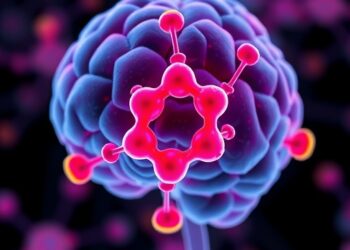A simple blood test that measures the number of lymphocytes, a type of white blood cell in the body, may predict whether people who have relapsed multiple myeloma are going to respond well to CAR-T immunotherapy, according to new research from Weill Cornell Medicine, NewYork-Presbyterian, Columbia University and Icahn School of Medicine at Mount Sinai.
A simple blood test that measures the number of lymphocytes, a type of white blood cell in the body, may predict whether people who have relapsed multiple myeloma are going to respond well to CAR-T immunotherapy, according to new research from Weill Cornell Medicine, NewYork-Presbyterian, Columbia University and Icahn School of Medicine at Mount Sinai.
The paper, published online May 22 in Blood Advances, found that patients who had an increase in absolute lymphocyte count (ALC) during the first 15 days after receiving a CAR-T infusion had a higher chance of a complete response and better progression-free survival than patients with a lower ALC at day 15. Knowing that the treatment may not work allows doctors to try other options more quickly.
Multiple myeloma is a blood cancer that originates in plasma cells, a type of white blood cell found in the bone marrow. Nearly all patients who have multiple myeloma relapse at some point, meaning after an initial positive treatment outcome, the cancer returns and requires further therapy.
Chimeric antigen receptor T-cell immunotherapy used to treat relapsed multiple myeloma after other drugs have failed involves collecting a patient’s own immune cells and genetically modifying them to find and kill cancer cells. The souped-up immune cells, called CAR-T cells, are infused back into the patient where they home in on BCMA, a protein found in high amounts on the surface of multiple myeloma cells.
“This highly active FDA-approved treatment is widely used, but until now there’s really been nothing to tell us whether BCMA CAR-T is going to work or not after the patient has received this personalized therapy,” said lead author Dr. Mateo Mejia Saldarriaga, assistant professor of medicine in the Division of Hematology and Medical Oncology at Weill Cornell Medicine and an oncologist at NewYork-Presbyterian/Weill Cornell Medical Center. “Using ALC as a marker for how well a patient will respond could better guide treatment.”
Dr. Ruben Niesvizky, professor of medicine at Weill Cornell Medicine and an oncologist at NewYork-Presbyterian/Weill Cornell Medical Center is co-senior author with Dr. Mark Bustoros, an assistant professor of medicine at Weill Cornell Medicine and corresponding author. Both researchers are also members of the Sandra and Edward Meyer Cancer Center at Weill Cornell Medicine. They worked with their colleagues at Columbia Herbert Irving Comprehensive Cancer Center and The Tisch Cancer Institute at the Icahn School of Medicine at Mount Sinai.
Predicting Who Will Benefit from Treatment
Based on previous observations, the researchers analyzed data at the three medical institutions from 156 patients who had received BCMA-CAR-T therapy between 2017 and 2023 for relapsed multiple myeloma. Patient ALCs were taken five days before treatment started and for the first 15 days of BCMA CAR-T therapy.
Patients with higher ALC at day 15 had significantly better response to treatment with their cancer under control for an average of 30 months whereas those who had lower ALC only had six months of progression-free survival on average.
“This was a multicenter collaborative study between three big institutions in New York that ensures the diversity of the patient population and decreases the chance of bias,” Dr. Bustoros said. “We were able to confirm that high ALC is an independent predictive marker of disease progression after accounting for various factors like age, previous treatments and high-risk disease features.”
Laboratory studies showed that higher ALC was associated with the BCMA CAR-T cells thriving in the body—growing and multiplying, which may be a reason the cancer was kept in check.
“If doctors can identify patients who are more likely to have a poor response to BCMA CAR-T, other treatments can be explored or given earlier,” said Dr. Mejia Saldarriaga. Researchers also want to determine how they can create strategies to enhance BCMA CAR-T activity in patients who have lower ALC. “The treatment has been a great tool, but there is still room for improvement,” he added.
Many Weill Cornell Medicine physicians and scientists maintain relationships and collaborate with external organizations to foster scientific innovation and provide expert guidance. The institution makes these disclosures public to ensure transparency. For this information, please see the profiles for Dr. Mark Bustoros and Dr. Ruben Niesvizky.
Journal
Blood Advances




